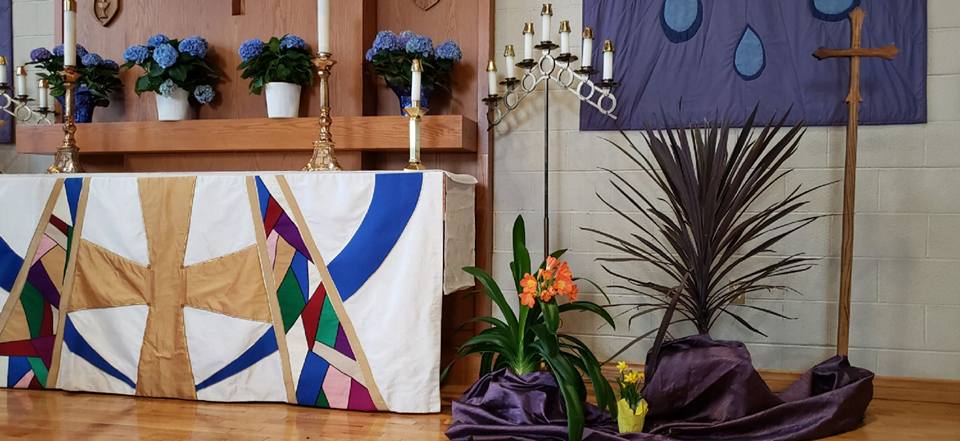Sunday, August 22, 2021:
John 6:56-66
Today marks the last of four Sundays in which we’ve explored this part of John’s Gospel, concerning Jesus — and specifically Jesus’s flesh — as life for the world. Last week’s celebration of St. Mary was a detour, though I can’t help but think that it fits our theme, in how Mary is responsible for the humanity of Christ, the embodied nature of our Saviour, and as articulated in her song, the Magnificat, a forceful concern for the life of the world.
And just as Mary’s ‘non-traditional’ situation as an unwed pregnant young woman would have upset many, Jesus’s discourse in John ends on a somewhat disturbing note: “When many of his disciples heard it, they said, “This teaching is difficult; who can accept it?” And he says to his closest disciple, “Do you also wish to go away?”
Jesus, all these weeks, has been dabbling in offensive words. He causes controversy; the crowds murmur; people fall away; this is a “hard language.” In this section we heard today, these aren’t the stubborn disbelievers; it’s a contingent of his followers. Disciples. (Our world today struggles with what to do when one is faced with hard language, and controversy, and the giving or taking of offense; what to do with that power.)
I recall one experience I had, in a different congregation, where one of the selections for our movie discussion group offended a parishioner. (There was swearing, and the characters did bad things, as fictional, and real people, sometimes do.) But for the twenty or so people who didn’t fall away, they found the movie to be an entryway into serious reflection on relationships, morality, and mortality. We’re all wired a little bit differently, and we each react to conflict, challenge, and hard words in our own way. Some gravitate to a ‘fight’ response, and others to ‘flight.’ Or, as Jesus would find out at the end of his ministry, the third option is to, as a collective, pile on and destroy that which discomfits us.
But all of those examples exist as an ‘us vs. them’ paradigm. What Jesus seems to want to do here, though, is entirely different. It doesn’t fit in that box. Listen to the language he uses, here, and throughout the gospels: dwell in me; live through me; abide in me; follow me; stay with me. I am the vine, you are the branches. Jesus is describing a situation of deep involvement. And action. Here he says “whoever eats me will live because of me.” In the separate family of Gospels we call the synoptics — and as passed on by Paul — he connects himself to that which he’s holding and says “do this in remembrance of me.” Jesus is gathering a community that will be formed through a practice, an action, of eating that is to be seen as deep involvement (or indwelling) with him, and with one another. We call it Communion, or the Lord’s Supper, or Eucharist. Which means “thanksgiving.” And if we wanted to get as far away from “murmuring” that is possible, what would we call that? How about “thanksgiving.” Eucharist.
Jesus’s words about eating his flesh are hard words. But maybe it is similarly hard to wrap our minds around his words about that flesh being given and eaten for the life of the world, as I’ve pointed out in earlier weeks. But maybe it’s our faith that keeps us coming back to the altar, when most of the world has fallen away. Where in a world of strangers, others, and enemies, we maintain the vision of a humanity that is united, like a family at the dinner table. And we represent that world, as beautiful and blessed, yet obstinate that it is, and hold the world up — as the bread and cup are lifted up — and live as people of thanksgiving; not murmuring. And we are then sent back out into the murmuring world, awkwardly to be people modelling life transformed and renewed — through death and thanksgiving.
“On the night he was handed over to suffering and death… he gave thanks.” Amen.
© 2021 The Rev’d Matthew Kieswetter
